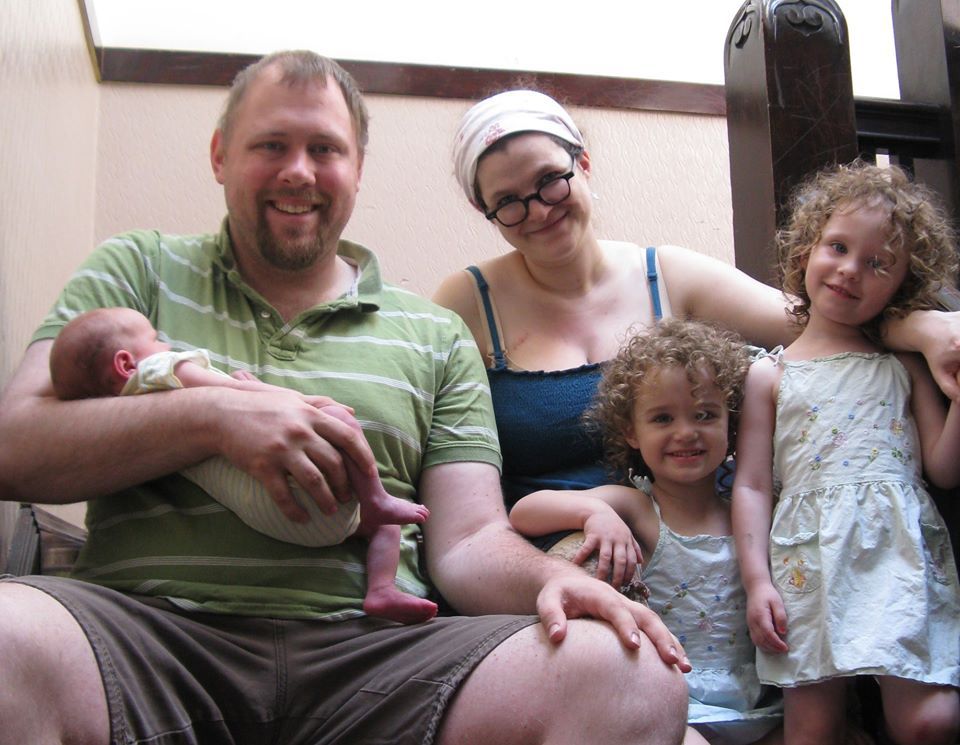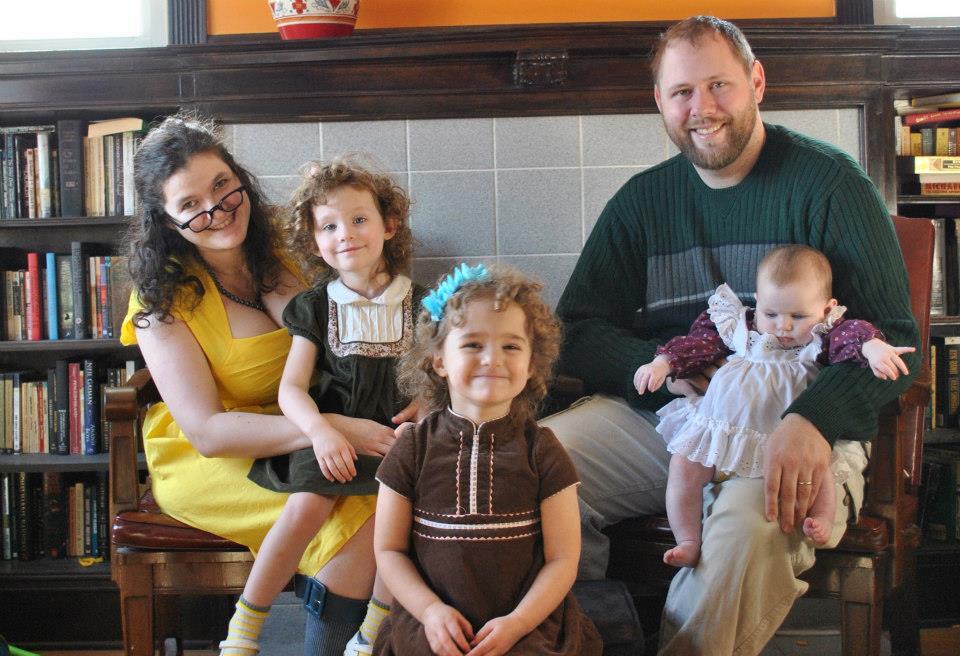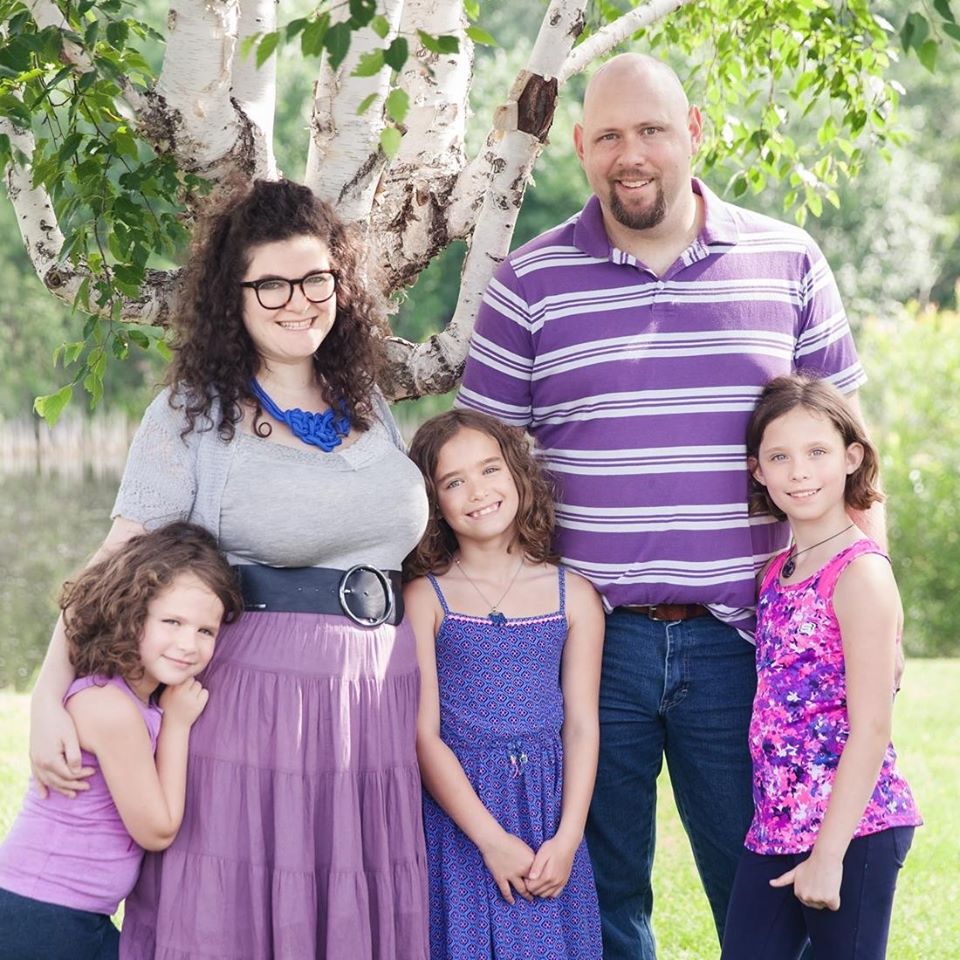When my third daughter was born in 2012, it took us nearly a month to get good at breastfeeding together. She wanted to be held differently than her sisters, she refused supplementary bottles, she nursed exclusively and sometimes violently, and I spent many hours sobbing while I tried to feed her until, finally, we found our way. Six weeks after she made her way into the world, things seemed to have reached a happy kind of peace in my home. We spent a happy Sunday morning as a family, relaxing together in the living room. My husband, Mike, watched a football game on TV while the twins played with blocks on the floor. I sat curled up in an armchair reading a book, and the new baby was calm but alert in her swing, when suddenly, everything changed. I felt like a vise had closed on my heart. I couldn’t breathe. I began sweating, my head swam, a rushing sound filled my ears, and my vision tunneled down, everything going black.
Soon, every time I had a letdown it was preceded by an intense panic attack of only a minute or two. Every three hours the world seemed to collapse onto me.
My husband jumped to my side, shouting, “Are you okay? What’s wrong? What’s happening?”
And as quickly as it had come over me, the feeling passed, and as it passed I felt the familiar clenching in my chest that indicated a letdown.

“I think I had a panic attack,” I said. “I’m OK now, though. Can you bring me the baby? I think it’s time for her to eat.”
But that night, the vise clamped inside my chest once more, and the rushing sound of my blood filled my ears. Standing in the kitchen, I screamed, sure I was dying. Again, the episode ended quickly, with the sensation of a letdown and the sound of my baby fussing in the next room.
The next day it happened again. And again. Soon, every time I had a letdown it was preceded by an intense panic attack of only a minute or two. Every three hours the world seemed to collapse onto me. I couldn’t speak or breathe; I couldn’t do anything but scream and weep. I was certain I was going to die, and no matter how many times I told myself it would be over quickly, the thought kept running through my head, “What if it doesn’t stop this time? What if it never stops? What if it keeps going until my heart stops beating forever?”
Then, my doula called me. I wasn’t expecting ever to hear from her again, but she told me the months after delivery were just as important to my health and well-being as the months of my pregnancy.
When my OB asked how I was doing, I told him about the panic attacks. He told me to see a psychiatrist. When I tried to explain the differences between the symptoms I felt and any panic attack I had ever experienced before, he shrugged me off. I couldn’t find the words to explain how physical it felt, how there were no triggers to set me off, and that the only correlation seemed to be breastfeeding, which was something I enjoyed. At the baby’s two-month well visit I asked the pediatrician. She was sympathetic but had no suggestions and no clue why this was happening to me. The nurses at her office watched me latch the baby and shook their heads. “Whatever is happening, your baby is thriving, so you’re doing a good job.”

I did not feel like I could do a good job of anything when I was living in a constant state of dread and terror. Then, my doula called me. I wasn’t expecting ever to hear from her again, but she told me the months after delivery were just as important to my health and well-being as the months of my pregnancy. She said, “You sound concerned about something. Do you want to talk about it?” and I burst into tears. I told her about the panic attacks, about how visceral but short they were, how intense and overwhelming but completely divorced from my mood or anything else happening in my day. She listened in silence as I spoke at length, and at last I took a deep breath.
“Am I going crazy?” I asked. “Is this going to kill me?”
“I don’t think you’re going crazy, and I don’t think you’re dying. I’ve never heard of anything quite like this before, but I think I know who I can ask. I promise I’ll do everything. I can get some answers for you.”
As the next month passed I sank deeper and deeper into a severe postpartum depression. I began considering my OB’s suggestion and finding a therapist. It felt wrong, though. I knew my problem, though becoming a psychological one, was based in something tangible happening to my body. I lost any hope that somebody would help me. I didn’t reach out to my doctor, my friends, or my doula. The strain of the constant panic attacks coupled with a fear of leaving the house and having one in public, where my toddlers might be unsafe if I could not look after them, kept me locked up in my apartment, and soon I found myself contemplating suicide, certain there was something irreparably broken in me, that I had failed as a mother and a person, and that I would never feel normal again.
But mostly what she did was listen, and reassure me that I wasn’t fundamentally broken, and that I and my baby would both be on the other side of this experience, and we would thrive.
Meanwhile, my doula was hard at work. She was talking to colleagues in other practices and lactation consultants and scouring the internet for articles on similar cases. She didn’t dismiss me, and she didn’t give up.
Just shy of my baby’s fifth month, she called me. “What you have is called D-MER, dysphoric milk ejection reflex. There’s not a lot of literature, but I’ve got a good link I’m going to send you.”
A feeling of relief washed over me. “It’s real?”
“Yes, it’s real. You know how when you nurse, you get a rush of happy hormones? Well, this means that your brain is sending out the wrong hormones. It’s letting out a flood of adrenaline and cortisol instead of oxytocin.”
I read every word she sent me, and the relief intensified. While D-MER typically isn’t as severe as what I’d been going through, there was documentation on the disorder. There were observable symptoms and patterns. I wasn’t losing my mind. I wasn’t alone. I had a diagnosable medical condition, and somebody understood and was trying to help me.

In finding a name for what was happening to me, she threw me the lifeline I desperately needed. Empowered with the information and support from my doula, I continued nursing. She was there for me to do whatever she could to help. She helped me prepare literature to bring to my OB so he and I could talk about medication. She helped me find a therapist who specialized in postpartum depression and who was open to learning about this newly named condition. But mostly what she did was listen, and reassure me that I wasn’t fundamentally broken, and that I and my baby would both be on the other side of this experience, and we would thrive. The panic attacks reduced. My depression shrank from suicidal to almost nonexistent. By the time my baby weaned, the panic attacks were long gone.
When I reflect on my D-MER, I don’t think about the intensity of those attacks, the inability to breathe, or my perceived certainty of my death. What I think about is that phone call seemingly out of the blue, a birth worker who saw that I was struggling and did what no other medical professional could do for me. I think of her voice telling me I was going to survive and of believing her. I look at my thriving seven-year-old and think, this is thanks to her. All of this I owe, in no small part, to the doula who saved my life.
Like this piece? Subscribe to our newsletter for real stories about women on their journey to motherhood.
